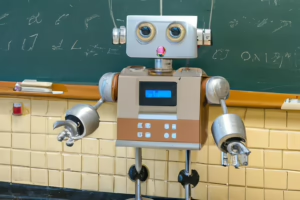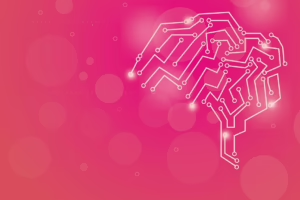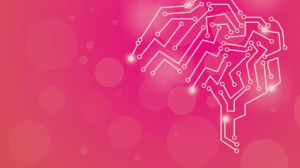The Intersection of AI and Education: Personalized Learning Experiences
Introduction
The advent of artificial intelligence (AI) in the educational sector has revolutionized how educators and learners interact with content and each other. This technological shift is significant as it introduces new dimensions to personalized learning experiences. Personalized learning tailors education to individual student needs, preferences, and learning paces. By merging AI with educational methodologies, we can create an enriched environment where students receive customized resources and support.
This article explores the intersection of AI and education, emphasizing the potential for personalized learning experiences. We will examine current applications, benefits, challenges, and future implications of this evolving relationship.
Understanding Personalized Learning
Personalized learning is an educational approach that seeks to customize learning experiences based on the needs of individual students. Unlike traditional education models, which often employ a one-size-fits-all strategy, personalized learning advocates for an education system responsive to diverse learner profiles. This methodology allows students to engage with materials relevant to their interests and aptitudes, fostering a sense of ownership over their learning journey.
Personalized learning usually encompasses several key components:
-
Individual Learning Goals: Students set targets tailored to their strengths and weaknesses.
-
Flexible Learning Paths: Various pathways allow learners to choose how they achieve learning objectives.
-
Competency-Based Progression: Students advance upon mastering content rather than adhering to a fixed timeframe.
-
Ongoing Assessment and Feedback: Continuous evaluation and feedback mechanisms facilitate student growth.
With AI-driven tools, educators can enhance these components, creating an ecosystem where learning is more adaptive and engaging.
The Role of AI in Education
AI encompasses a broad range of technologies, including machine learning, natural language processing, and robotics, each contributing unique capabilities to the educational landscape. Here are some of the ways AI is currently being integrated into education:
1. Intelligent Tutoring Systems (ITS)
Intelligent Tutoring Systems are AI-driven platforms that provide personalized tutoring experiences. They assess student knowledge, identify gaps, and present tailored instructional materials. For example, systems like Carnegie Learning use AI algorithms to deliver customized math lessons, adapting in real-time based on student performance.
2. Learning Management Systems (LMS)
Modern LMS platforms, such as Canvas and Moodle, now incorporate AI features that help track student engagement and performance. By analyzing data from interactions, these systems can suggest resources and pathways for improvement, offering personalized recommendations and alerts to educators when students may be struggling.
3. Chatbots and Virtual Assistants
AI-powered chatbots can provide instant support to students, answering questions about course materials and administrative processes. For instance, Georgia State University employs an AI chatbot to assist students in navigating financial aid and registration, improving access to information.
4. Predictive Analytics
Predictive analytics utilizes AI to analyze data trends, enabling educators to identify students at risk of falling behind or dropping out. By examining historical data, AI algorithms can forecast performance issues and interventions can be planned proactively.
5. Adaptive Learning Platforms
Adaptive learning platforms, like Knewton or DreamBox, utilize AI to continually assess student performance and adapt content accordingly. These platforms adjust the difficulty level and types of questions presented, catering to the individual learner’s journey.
Personalized Learning Experiences Powered by AI
AI’s remarkable ability to analyze and interpret vast amounts of data enables the development of highly personalized learning experiences. Here’s how AI impacts various facets of personalized education:
Custom Learning Pathways
AI can create customized learning pathways that consider each student’s unique strengths, weaknesses, and interests. By continuously analyzing performance data, AI can recommend specific resources and tasks that align with individual learning styles.
Real-time Feedback
Immediate feedback allows students to understand their progress and areas needing improvement quickly. AI-driven tools provide assessments and instant guidance, a significant improvement over traditional assessment feedback timelines.
Scalability and Accessibility
AI has the potential to make personalized learning scalable. Tools and resources can reach a broader audience, including students in remote or underserved areas, thus democratizing education.
Enhanced Engagement
AI-powered systems can gamify learning experiences, making education more interactive and appealing to students. Features such as adaptive quizzes and interactive simulations keep learners engaged and motivated.
Support for Diverse Learning Needs
AI tools can cater to students with different learning abilities, providing support for those with disabilities or those who require remediation in specific subject areas. Customizable resources ensure that all students receive the attention they need to succeed.
Benefits of AI-Driven Personalized Learning
The integration of AI into personalized learning environments offers numerous advantages:
Improved Student Outcomes
By receiving tailored educational experiences, students often achieve better outcomes, including higher retention rates, improved test scores, and overall enhanced educational experiences. A study by the Bill & Melinda Gates Foundation found that personalized learning initiatives yielded significant gains in student achievement.
Increased Engagement and Motivation
AI can provide a dynamic learning atmosphere that keeps students engaged. Personalized content relates more closely to learners’ interests and abilities, fostering a deeper connection to their education.
Teacher Empowerment
AI does not replace educators; rather, it empowers them by automating administrative tasks and providing insights into student performance. This allows teachers to focus on instruction and student relationship-building, leading to stronger classroom environments.
Data-Driven Instruction
AI systems accumulate vast amounts of data that can help educators refine curricula and instructional techniques. This data provides insights into how effective existing strategies are, thereby informing pedagogical adjustments.
Challenges and Concerns
Despite the many benefits of AI in education, several challenges and concerns must be addressed:
Data Privacy and Security
The increasing reliance on technology necessitates robust data privacy measures. Student data must be handled responsibly to mitigate risks related to breaches or misuse of information.
Equity and Access
While AI has the potential to democratize education, not all students have equal access to technology. Disparities in resources can exacerbate existing inequalities, making it essential to address these gaps proactively.
Dependence on Technology
Relying heavily on AI could lead to diminished critical thinking and problem-solving skills among students. Educators must balance the use of technology with traditional teaching methods to ensure well-rounded skill development.
Teacher Training and Adoption
For AI technologies to be implemented effectively, teachers must receive adequate training. Resistance to adopting new technologies can hinder the potential of personalized learning experiences.
The Future of AI in Education
As we look ahead, the role of AI in education is set to expand significantly. Here are some anticipated developments:
Enhanced Collaboration
Future AI systems will likely enable more collaborative learning environments, connecting students worldwide for group projects and shared experiences. This could foster a greater sense of global citizenship and cross-cultural communication.
Augmented Reality and Virtual Reality Integration
The integration of augmented (AR) and virtual reality (VR) with AI can create immersive learning experiences. Students could explore historical events, conduct virtual science experiments, or visit geographical locations, enhancing their contextual understanding.
More Intuitive AI Systems
As AI technologies evolve, we can expect systems that understand contextual cues better and adapt more fluidly to the intricate nuances of human behavior. This will enhance the amenability of AI to meet learning styles and preferences.
Focus on Social-Emotional Learning
AI could play a pivotal role in monitoring students’ emotional well-being and social dynamics within classroom settings. Adaptive programs could tailor interventions to help students build interpersonal skills and resilience.
Conclusion
The intersection of AI and education promises profound changes, particularly in developing personalized learning experiences. By leveraging the data-processing capabilities of AI, educators can provide tailored pathways that meet individual student needs. The benefits of these systems can enhance student engagement and outcomes, leading to a more effective and efficient educational landscape.
However, this technological evolution also presents challenges. As we progress, ongoing discussions around data privacy, equity, and the appropriate balance of technology in education will be critical. The potential of AI to revolutionize education and create personalized learning experiences is immense, but it requires careful navigation to ensure that all students benefit equitably.
Looking ahead, educators and policymakers must collaborate to harness the capabilities of AI while addressing the complexities that arise. With thoughtful implementation, the future of personalized learning—augmented by AI—holds the promise of making education more accessible, engaging, and effective for all learners.
References
- Bill & Melinda Gates Foundation. (2013). “Learning about Learning: What Teachers and Students Can Learn from Personalized Learning.”
- Carnegie Learning. (n.d.). “The Future of Learning: Personalization at Scale.”
- Georgia State University. (2021). “Georgia State’s AI Chatbot: A Case Study.”
- Knewton Inc. (n.d.). “Adaptive Learning in Education: A Knewton Primer.”
- DreamBox Learning. (n.d.). “Adaptive Math Solutions for K-8 Students.”
This article provides a comprehensive overview, balancing conceptual understanding and practical implications, framed around developments in AI and personalized education. If more specific details or additional topics are required, such as case studies or expert opinions, please let me know!


























Add Comment